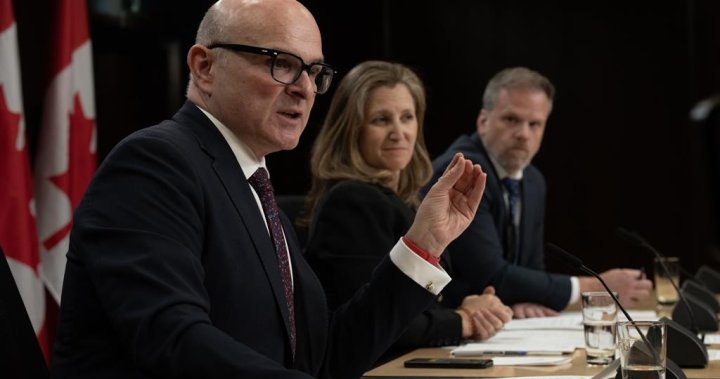The federal contract awarded to cabinet minister Randy Boissonnault’s former medical supply company, Global Health Imports (GHI), for disposable gloves was not publicly posted for seven months due to an internal error. Boissonnault held a 50% stake in GHI at the time the contract was awarded, which raised conflict of interest concerns as ministers are prohibited from having an interest in companies that obtain federal contracts. The contract, worth $28,000, was not part of the earlier discussions surrounding Boissonnault’s involvement in GHI’s business dealings while in office. Boissonnault has denied being the “Randy” mentioned in texts related to GHI.
The delay in publishing the information about the contract, which should have been done within 30-60 days according to Access to Information laws, was attributed to an internal error by Elections Canada. The information was eventually uploaded to the Open Government database 217 days after the contract was awarded. The timelines raised questions about transparency, accountability, and compliance with reporting requirements. The delay impacted the work of parliamentary committees and could be misinterpreted as a cover-up.
Tory ethics critic Michael Barrett called for an investigation into Boissonnault’s potential benefit from the contract and his continued association with a company involved in scandals. NDP ethics critic Matthew Green highlighted the importance of timely disclosure to ensure compliance with the Conflict of Interest Act. Boissonnault, who resigned as a director of GHI after his re-election in 2021, maintained that he had no knowledge of the contract and had no involvement with the company since leaving. The exact date of Boissonnault’s testimony before the ethics committee has not been set yet.
Boissonnault co-founded GHI with Stephen Anderson in 2020, selling personal protective equipment amid the COVID-19 pandemic. While Boissonnault stepped away from the company in 2021, he remained a major shareholder until June of the same year. New texts surfaced linking “Randy” to Vancouver, where Boissonnault was present for a cabinet retreat, prompting the ethics commissioner to reopen the case. The commissioner could grant an exemption to Boissonnault if he determines that the contract is unlikely to affect the exercise of the minister’s duties.
The lack of oversight of proactive disclosures under Access to Information laws has raised concerns about government transparency and accountability. While information commissioner Caroline Maynard has highlighted issues with the legislation, the responsibility for proactive publication rests with heads of government institutions. The ongoing contract between Elections Canada and GHI for disposable gloves is part of the agency’s emergency preparedness efforts but has not led to any orders being placed so far. The contract was not specifically seeking suppliers with a medical device establishment license, which GHI currently does not hold.
Overall, the delays in publishing information about the federal contract awarded to Boissonnault’s former company raise questions about transparency, accountability, and compliance with access to information laws. The ongoing investigations and testimonies before parliamentary committees will shed more light on Boissonnault’s involvement and any potential conflicts of interest. The role of the ethics commissioner in granting exemptions and ensuring adherence to conflict of interest rules will be crucial in resolving the issues raised by this case.


